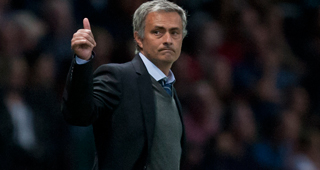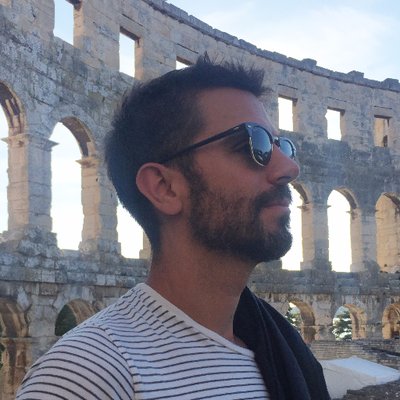In his first season back at Chelsea, José Mourinho messed around and nearly won a Premier League/Champions League double.
Mourinho endlessly lamented his lack of quality options at striker in Fernando Torres, Demba Ba and Samuel Eto’o, threatened to field a weakened roster in a key late season match at Anfield that Chelsea ended up winning and cost Liverpool the title, was briefly ahead of Atlético Madrid at Stamford Bridge for a trip to the Champions League Final against his former club, and ultimately finished just six points behind Manchester City. That may add up to just a lot of fancy, trophy-less consolation prizes on his C.V., but that’s a great season for Mourinho considering the circumstances.
All the while in somewhat muffled impact, he bought Nemanja Matić and sold Juan Mata to Manchester United in January, prepared a lucrative sale of David Luiz and fiercely challenged his most talented player, Eden Hazard, to become a more complete player.
The summer began with the sale of Luiz to Paris Saint-Germain for £50 million, which was universally hailed as an absurdly phenomenal haul for Chelsea to fetch for a talented but perennially frustrating player. As the World Cup went on and Luiz had his typical one moment of brilliance for two moments of absurdity, it became clear that Chelsea was fortunate to time the sale as they did.
Chelsea than bought Cesc Fábregas from Barcelona for £27 million, bringing the former prodigy back to London after Arsenal declined to exercise their buy back option. After a brilliant assist in Chelsea’s first match against Burnley, Mourinho already called out Barça for how they “misused” him and that he won’t make the same mistake. Mourinho is right in Fábregas being miscast so frequently with Barça as a false nine and that he will remain firmly in the middle of the pitch with Matić playing the defensive role.
Fábregas is a much better fit than Mata as he can play a deeper role comparable to Frank Lampard and is also willing and capable to press. Mourinho demands an incredibly high work rate and Fábregas just turned 27 even though most mistakenly view him as far older since he’s been around forever. Barça didn’t view him as capable of fulfilling the Xavi role as his heir apparent and they’re probably right as Mourinho’s system is better suited to his strengths. There is a fluidity to Chelsea’s movement with Fábregas that wasn’t there last season and the trickle down effect in how he can make the likes of Hazard and Oscar better is immeasurable.
The final major move was actually the one that began all the way back in the Champions League Semifinals when the long anticipated transfer deal with Atlético Madrid for Diego Costa worth £32 million was finalized. The past few months has seen Costa go on a rollercoaster of perception—from late bloomer to one of the best strikers in the world to injury-ridden horse placenta pioneer to a bad fit on the Spanish National Team as a mercenary. The transfer looked so good for Chelsea in May when Costa was wrapping up a season in which he was clearly the next great Atleti striker, but that evolved into severe trepidation in July when the deal was finally official.
Costa has a good blend of movement and strength with the type of physicality that will be successful in the Premier League. While the Chelsea options up top last season were hardly imposing in either skill or physical presence, Costa commands attention and will produce goals while marked and also draw attention away from other players to create space.
Mourinho made another expensive sale, agreeing to a £28 million transfer of Romelu Lukaku to Everton. Lukaku is one of the most physical young strikers in the world and he can change the complexion of a match in an instant as he displayed in the World Cup in the United States, but that’s a lot of money for a player Mourinho seemed adamant on labeling not quite good enough for first team action.
Mourinho finally brought back Didier Drogba in a move that is part sentimental, part bargain and partly needed. Mourinho was the one that bought Drogba for Chelsea back in 2004 for £24 million in a move that became one of the most critical in the Premier League over the past decade.
Mourinho has set his board over the past year with a deft, confident hand and has returned to Chelsea after his stops Inter and Real omnicompetent to deal with all of the rigors of England. Chelsea has a roster capable of playing beautifully at times, but is also chameleonic enough to retain those Mourinho characteristics of grinding out results.



